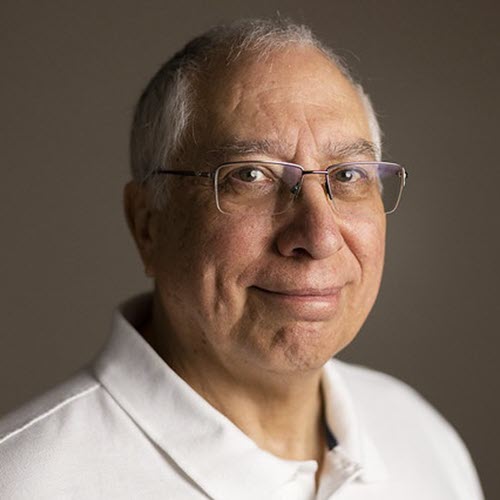One of the most important papers you will ever sign is your Will. You will need to protect it and to make sure that this statement of your best intentions toward those you care the most about will do the job that it was designed to do. Periodically (every 5 to 7 years) you should review it to determine if it makes sense in light of changing family and financial circumstances.
When you do, keep these questions in mind:
a
1. WHERE IS YOUR WILL KEPT?
Charles drafted his Will, leaving $50,000 to his daughter and a small farm to his son. At the time, it seemed to be an equitable decision. Years later he went to look for his Will but couldn’t find it, so he had an attorney draft a new one. In his new Will, he left his daughter one quarter the value of his entire estate in cash and the son was still to have the farm. Then the first Will was found. Charles considered – correctly so – that the first Will was still in force, but he decided to keep the second Will “just in case.” When Charles died, the court battle was begun between the son and daughter as to which Will should be in effect. By this time the value of the daughter’s inheritance from the second Will was worth considerably more than $50,000. The protracted litigation included substantial legal fees, appeals to the State Supreme Court, much delay and lasting estrangement between sister and brother. All of this could have been avoided if clear language in the second Will would have declared all previous Wills null and void and if Charles had entrusted this very important document to a safe place and into reliable hands, perhaps his executor’s and/or his attorney’s. A good family sit-down to openly discuss the disposition of his earthly possessions would have helped to preserve family harmony.
2. WHO AND WHERE ARE YOUR WITNESSES?
Circumstances may arise in the probate of your Will that the court may want to ask questions of your witnesses. Do you know where they live now? Are they still capable of testifying about your Will? If the witnesses die, become infirmed or they move away – or you do – problems may arise.
3. IS YOUR WILL TOO RIGID?
In the last years of his life George bought 10,000 shares of a company that he believed had great potential. He strongly advised his executors not to sell the shares, so they didn’t. As it turned out, the company failed a few years after George’s death, the shares became worthless, and his would-be heirs were left holding an empty bag. Conclusion: It is a mistake to bind your executor’s hands too tightly. There is no way to predict today what will happen tomorrow or the next year, especially in the world of finances and the stock market. A similar situation can occur when a Will designates specific items for specific heirs. What happens if you inadvertently sell the item or give it away to someone else? Hurt feelings and resentment are not the legacies one wants to leave to ones heirs.
4. HAVE YOU INADVERTENTLY CANCELLED YOUR WILL WITHOUT REALIZING IT?
Alice was the proverbial wealthy widow, well-provided for by her late husband. She was also relatively young and attractive. When she remarried, she had a new Will drafted. It included a trust that would provide income for her new husband for his lifetime with the remainder paid to Alice’s children and grandchildren. Unfortunately, Alice agreed to have joint savings and investment accounts with her new husband. In the USA, property held jointly passes to the survivor by operation of law and is not controlled by the Will. The result: when Alice died, virtually all her wealth (and that of her first husbands) went to her second husband and after his death passed to his heirs instead of Alice’s children. The Will, for all its importance, is only one element in an estate plan. The entire plan must be carefully analyzed and coordinated to ensure that your Will be done and your true intentions are carried out.
5. DOES YOUR WILL REFLECT SOUND TAX PLANNING?
Millionaires often are able to leave a larger percentage of their estates to their heirs than ordinary people because they planned the disposition of their estate assets rather than let the probate court decide how it should be carried out. Unlimited marital deduction, charitable deductions, generation-skipping trusts, untaxed life insurance proceeds to heirs – these are just a few of the ways tax-savvy planners avoid unnecessary depletion of what they worked so hard for and want to leave to family, friends and favorite charities.
6. DOES YOUR WILL NAME AN EXPERIENCED EXECUTOR?
Whole books have been written on the duties of an executor and each state has developed its own set of rules to follow. All things considered, it’s not a job for amateurs. If you have named a family member or friend, be sure to give them authorization to seek professional help in settling the estate. Be sure to name a successor executor in case your first choice dies or declines to serve for personal reasons.
There is a seventh question about your Will we need to ask: Does it leave a bequest to charity?
Many people believe that a Will should be the last true reflection of that person’s life. It is also the last opportunity to remember those favorite charities which captured your interests, which you truly enjoyed supporting with contributions of time, talent and treasures.
There are a number of ways you can make a charitable bequest:
1) Make a cash gift. You may simply state that you wish to leave a specific cash amount or a certain percentage of your entire estate to one or more charities. It could also be the amount left after all other beneficiaries have received their bequests – the residue of your estate.
2) Make a gift of property, such as stocks, real estate and/or the whole or partial interest in a life insurance policy. The most tax-savvy gift may be one from the decedent’s IRA.
3) Make a gift in trust. Properly drawn trusts are so flexible they can do just about anything you would like to accomplish. A trust arrangement allows you to design a charitable gift in a wide variety of ways. You can often give the same gift twice – to your heirs and to Satchidananda Ashram–Yogaville and the future of Yogaville – through the use of trusts.
As with gifts made during your lifetime, the emotional satisfaction of helping others do things which are important to you also is not the only benefit. There are tax advantages to charitable giving as well.
Give us a call. We would be glad to spend time with you and discuss the best strategy for your particular circumstances.
Questions?
Please contact us

Jeeva Abbate
Fundraising Team Coordinator
Board of Trustees Member
Satchidananda Ashram–Yogaville
703-626-6385

Mitra Somerville
Fundraising Team Member
Ashram Reservations Manager
Satchidananda Ashram–Yogaville
808-594-9051
